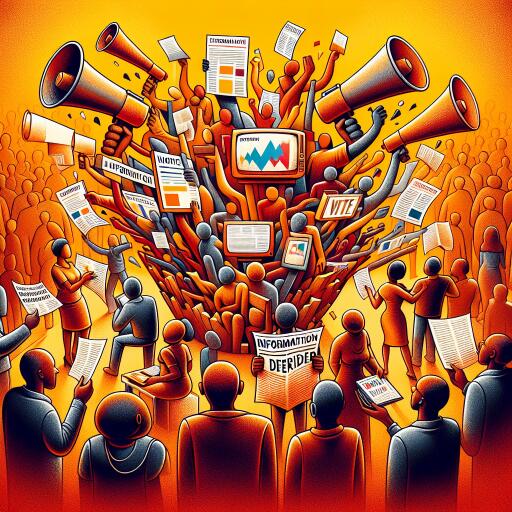The Escalating Influence of Digital Disarray on African Elections: A Closer Look
The digital age, marked by the surge of social media and the advent of Artificial Intelligence (AI), has significantly transformed the electoral landscape across Africa. This transformation has ushered in a new era where the integrity of elections is increasingly being compromised by what is known as information disorder. This phenomenon, characterized by the deliberate dissemination of misleading and inaccurate information, poses a formidable challenge to the democratic process in various African nations.
The Role of Generative AI and Social Media
In the context of closely contested and polarized electoral environments, the reliance on generative AI and social media platforms has intensified. These technologies are not merely tools for communication but have evolved into powerful channels for circulating hate speech and exacerbating information pollution. The impact of generative AI, in particular, can be delineated through four critical aspects: volume, velocity, virality, and verisimilitude. These elements work in concert to saturate the information space with content that is not only abundant and swiftly disseminated but also tailored to engage and deceive the target audience, making fake content, especially deep-fake videos, alarmingly convincing.
Regulatory Challenges and Democratic Impediments
The effectiveness of national authorities and Electoral Management Bodies (EMBs) in curbing the tide of misinformation remains limited, as legal and policy frameworks lag behind the rapidly evolving digital landscape. This regulatory gap undermines the electorate’s right to make informed decisions, a cornerstone of free, fair, and credible elections. Consequently, the sanctity of the democratic process is at risk, calling into question the reliability of election outcomes and the authenticity of the democratic journey in Africa.
Evaluating the Democratic Journey in Africa
Despite the longstanding belief in elections as a pathway to democratization, the reality on the ground often tells a different story. The occurrence of electoral malpractices, voter intimidation, and manipulation points to a systemic problem where elections sometimes serve as a guise for maintaining authoritarian regimes. However, it’s crucial to acknowledge the instances of democratic progress, illustrated by peaceful power transitions in countries like Nigeria, showcasing the potential for genuine democratic governance.
The phenomenon of one-party dominance in various African nations further complicates the narrative, raising questions about the efficacy of elections as a vehicle for political plurality. Nevertheless, the emergence of alternative political movements and the resilience shown by democratic institutions in countries like Kenya, Senegal, and Ghana highlight the capacity for democracy to take root and flourish, despite the odds.
Democratic Resilience and the Path Forward
As Africa approaches a significant election year in 2024, the focus turns to whether the continent is on a trajectory towards democratic consolidation or regression. The challenges are manifold, from electoral fraud to the pervasive influence of information disorder and authoritarian tendencies. Yet, the persistent drive among Africans for accountability, citizen-centric governance, and democratic integrity offers a beacon of hope. This collective aspiration underscores the importance of confronting the myths surrounding democracy in Africa, acknowledging the inherent challenges, and working determinedly towards a democratic future that is inclusive and representative of all its citizens.
In conclusion, the rise of information disorder in African elections is a complex issue that requires a multifaceted approach, encompassing regulatory reforms, technological literacy, and civic engagement. As we venture into an era of digital dominance, the resilience of democratic values and institutions will be pivotal in shaping Africa’s democratic destiny. The journey ahead is fraught with challenges, but the aspiration for a more democratic Africa remains a guiding light for both election practitioners and the electorate at large.









